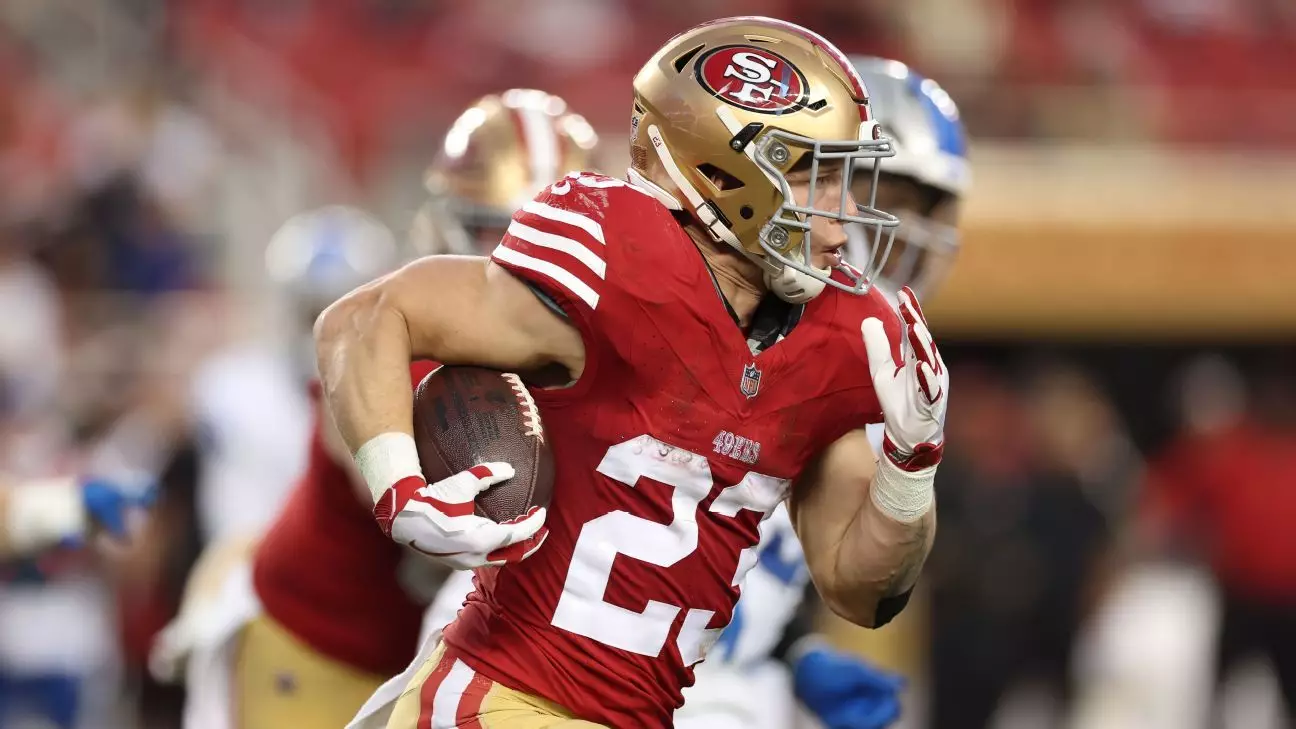As the San Francisco 49ers prepare for their match against the Tampa Bay Buccaneers, the spotlight is firmly on running back Christian McCaffrey, who is set to make his season debut after an extended stint on the injured reserve list. After being sidelined due to bilateral Achilles tendinitis, McCaffrey’s return is more than just a reintegration into the lineup; it symbolizes resilience, determination, and the intricate nature of professional football recovery. For a player of McCaffrey’s caliber, the period away from the game can be both physically and mentally taxing, but his statement about appreciating every moment on the field speaks volumes about his mindset.
The decision to activate McCaffrey came just in time to boost the 49ers’ offensive capabilities, which may have struggled due to his absence. In a league where every player counts, reinstating an elite running back has considerable implications for team dynamics and performance on the field. The 49ers had to part ways with running back Patrick Taylor Jr. to make room for McCaffrey, which highlights the competitive nature of NFL rosters. The team now boasts four running backs, with Jordan Mason, Isaac Guerendo, and fullback Kyle Juszczyk providing depth behind McCaffrey on the depth chart. This diversity in the backfield could be crucial as the team explores various offensive strategies.
McCaffrey’s journey back to the field wasn’t simply a matter of waiting out injuries. As he noted, the time spent rehabilitating was a challenging phase, prompting him to undergo extensive treatment and even travel to Germany to consult with a specialist. This level of commitment illustrates not just the physical challenges athletes face but also the mental hurdles that can be equally daunting. Athletes often push through pain, viewing it as part of the game, yet sometimes the surgery of self-care is necessary. McCaffrey’s candid acknowledgment of the tough moments during his rehabilitation process highlights the importance of a supportive network, both from the organization and personal connections.
Gratitude is a recurring theme in McCaffrey’s narrative. He expresses appreciation for the support from key figures in the organization, including General Manager John Lynch, coach Kyle Shanahan, and owner Jed York. This support emphasizes the collective effort to safeguard McCaffrey’s health and future on the field. In high-pressure environments like the NFL, having individuals who prioritize player welfare can significantly influence outcomes not only for the individual player but also for the team. The collaborative approach towards McCaffrey’s rehabilitation showcases the human side of sports management, wherein athlete well-being is balanced against the team’s competitive needs.
With McCaffrey back in action, fans and analysts alike are keen to see how his presence will reshape the 49ers’ offensive schemes. His game-changing ability can dramatically alter opponent strategies, adding a layer of complexity for defensive coordinators. Alongside Deebo Samuel, who is also expected to play following his recovery from injury, the 49ers may be on the cusp of recalibrating their attack style. This resurgence represents not just an athlete returning from injury but a team revitalizing its prospects.
Christian McCaffrey’s return is a testament to resilience and the power of support systems within sports organizations. As he steps onto the field once again, the anticipation surrounding his performance illuminates the intricate relationship between player health and team dynamism, creating narratives that resonate far beyond the touchdown lines. The 2024 season holds promise for both McCaffrey and the 49ers as they aim to capitalize on the recent reinforcements in their lineup.


Leave a Reply